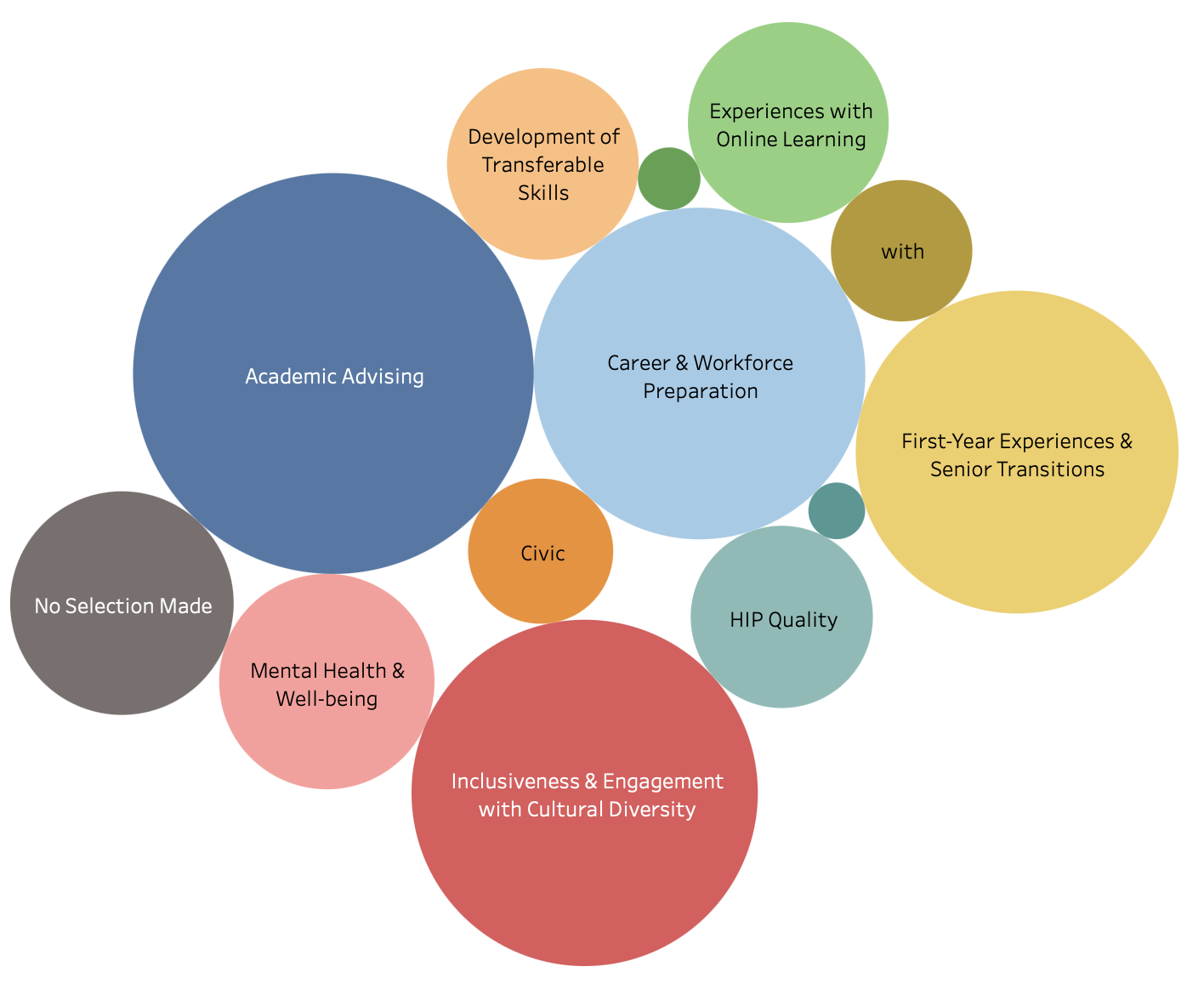Campus contacts customize recruitment messages in an online form, which is pre-filled with IRB-approved templates for each of the five recruitment messages. The subject line, message body, and signatory fields may all be customized so that NSSE is understood by students to truly be an initiative of your campus. It is also possible to customize the "from name" so that the message appears to have been sent by the signatory you select; however, NSSE recommends keeping the "from name" consistent with the sending email address ("NSSE") to avoid the appearance of phishing.
NSSE staff review each message for all participating institutions, to ensure message content adheres to IRB guidelines. Institutions electing to offer an incentive will customize incentive text separately, and NSSE staff will integrate this text into body of the recruitment message.
Review NSSE's "Dos & Don'ts" for message customization.
 Schedules and Message Customizations
Schedules and Message Customizations
Although the online survey is open from late February to mid-May, institutions can choose the window for active recruitment. An online calendar tool is provided which asks for relevant dates for your campus (i.e., term start and end dates, Spring Break, and other campus holidays) and generates an auto-schedule for you based on those parameters. However, institutions may request any alternate dates if the auto-generated schedule do not suit your needs. Recruitment messages are sent only Monday-Thursday.
 Schedules and Message Customizations
Schedules and Message Customizations
Incentives are commonly used in NSSE and are effective in boosting response rates. Institutions can choose to incentivize participation through a reward of their choice. Common choices include drawings for an electronic gift (i.e., iPad), for gift cards to local shops (i.e., campus bookstores) or to large retailers (i.e., Amazon). Experiential incentives may also be used; for example, you can raffle a lunch with your college or university's President, or priority access to a campus event. Per IRB, incentives must be described explicitly (i.e., must say Amazon gift card instead of just "gift card" and must stipulate the quality of prizes available). Incentives must also include an odds statement providing the student a reasonable estimate of their likelihood of winning. NSSE provides an IRB-approved template for incentive text. View NSSE's FAQ on incentives for more detailed information.
 Portals, Text Messages, and Incentives
Portals, Text Messages, and Incentives
Beginning with the NSSE 2022 survey administration, Indiana University’s Institutional Review Board (IRB) is requiring greater oversight of language used in promotional materials. All participating institutions’ promotional materials will be submitted for IRB review except when these materials closely follow IRB pre-approved content.
NSSE is providing guidance and template text to satisfy this new level of IRB review while also facilitating participating institutions creation of attractive and appropriate promotions to encourage students’ response.
For specific guidance and IRB pre-approved text and templates, view Encouraging Participation in NSSE: Using NSSE IRB-Approved Promotional Text.


